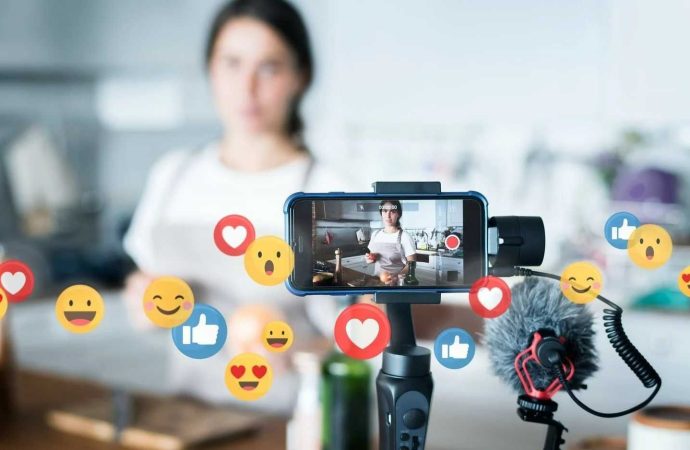In the digital age, social media has become an indispensable part of our daily lives. From connecting with friends and family to following our favorite brands and influencers, social media platforms serve as the epicenter of modern communication. However, as the landscape of social media continues to evolve, so do the ways in which we
In the digital age, social media has become an indispensable part of our daily lives. From connecting with friends and family to following our favorite brands and influencers, social media platforms serve as the epicenter of modern communication. However, as the landscape of social media continues to evolve, so do the ways in which we engage with content. The future of social media engagement is moving beyond the traditional feed, embracing new trends and technologies to create more interactive and personalized experiences. In this article, we will explore the key social media engagement trends that are shaping the future.
The Evolution of Social Media Engagement
Social media engagement has traditionally revolved around the feed—a continuous stream of posts, images, and videos that users scroll through. While the feed has been a central feature of platforms like Facebook, Instagram, and Twitter, it is no longer sufficient to meet the growing demands of users. As a result, social media platforms are innovating and introducing new features to enhance user engagement.
The Rise of Stories and Short-Form Content
One of the most significant social media engagement trends is the rise of stories and short-form content. Introduced by Snapchat and later adopted by Instagram, Facebook, and even LinkedIn, stories allow users to share ephemeral content that disappears after 24 hours. This format has become incredibly popular due to its authenticity and real-time nature.
Stories provide a more dynamic and engaging way for users to interact with content. Brands and influencers can leverage stories to share behind-the-scenes glimpses, product launches, and interactive polls. The temporary nature of stories also creates a sense of urgency, encouraging users to engage with the content before it disappears.
The Emergence of Live Streaming
Live streaming is another trend that is transforming social media engagement. Platforms like Instagram, Facebook, YouTube, and Twitch have integrated live streaming features, allowing users to broadcast in real-time. Live streaming offers a unique opportunity for real-time interaction and engagement, as viewers can comment, ask questions, and react to the broadcast.
For brands and influencers, live streaming provides a powerful tool to connect with their audience on a more personal level. Whether it’s hosting Q&A sessions, product demonstrations, or virtual events, live streaming allows for authentic and immediate engagement.
The Integration of Augmented Reality (AR) and Virtual Reality (VR)
Augmented Reality (AR) and Virtual Reality (VR) are revolutionizing the way users engage with social media content. AR filters and effects, popularized by Snapchat and Instagram, allow users to overlay digital elements onto the real world. These interactive features enhance user engagement by providing a fun and immersive experience.
Virtual Reality (VR), on the other hand, offers a more immersive experience by transporting users to a virtual environment. While still in its early stages, VR has the potential to transform social media engagement by creating virtual spaces for users to interact and socialize.

Picture by: Yandex.com
The Growth of Social Commerce
Social commerce is the integration of e-commerce with social media platforms, allowing users to shop directly from their feeds. Platforms like Instagram and Facebook have introduced shopping features that enable brands to tag products in their posts and stories. This seamless integration of shopping and social media enhances user engagement by providing a convenient and interactive shopping experience.
Social commerce also allows brands to leverage user-generated content and influencer partnerships to drive sales. By creating shoppable posts and collaborating with influencers, brands can engage with their audience in a more meaningful way.
The Importance of Personalized Content
Personalization is a key trend that is shaping the future of social media engagement. Users are increasingly seeking content that is tailored to their interests and preferences. Social media platforms are leveraging algorithms and data analytics to deliver personalized content to users.
For example, TikTok’s algorithm curates a personalized feed based on user interactions, ensuring that users are presented with content that aligns with their interests. Similarly, platforms like Instagram and Facebook use data to deliver targeted ads and content recommendations.
Personalized content enhances user engagement by providing a more relevant and enjoyable experience. Brands can leverage personalization to create targeted marketing campaigns and deliver content that resonates with their audience.
The Role of Community Building
Community building is becoming an essential aspect of social media engagement. Users are seeking more meaningful connections and interactions within their social media networks. Platforms are responding to this demand by introducing features that facilitate community building.
For example, Facebook Groups and LinkedIn Communities allow users to join groups based on shared interests and engage in discussions. These communities provide a sense of belonging and foster deeper connections among users.
Brands can leverage community building to create loyal and engaged audiences. By fostering a sense of community and encouraging user participation, brands can build stronger relationships with their audience.
The Impact of Influencer Marketing
Influencer marketing continues to be a powerful tool for social media engagement. Influencers, with their large and dedicated followings, have the ability to drive engagement and influence purchasing decisions. Brands are increasingly partnering with influencers to create authentic and engaging content.
Micro-influencers, who have smaller but highly engaged followings, are also gaining traction. These influencers often have a more niche audience, allowing brands to target specific demographics and create more personalized campaigns.
The future of influencer marketing lies in authenticity and transparency. Users are becoming more discerning and seeking genuine connections with influencers. Brands and influencers must prioritize authenticity to build trust and drive engagement.
The Adoption of Messaging Apps
Messaging apps are playing an increasingly important role in social media engagement. Platforms like WhatsApp, Messenger, and WeChat offer private and direct communication channels for users. These apps provide a more intimate and personalized way for users to engage with each other and with brands.
Brands are leveraging messaging apps to provide customer support, send personalized messages, and facilitate transactions. The use of chatbots and automated messaging is also enhancing user engagement by providing instant responses and support.
The Emergence of New Platforms
The social media landscape is constantly evolving, with new platforms emerging to cater to specific user needs. Platforms like TikTok and Clubhouse have gained popularity by offering unique and innovative ways for users to engage with content.
TikTok’s short-form video format and algorithm-driven feed have created a highly engaging user experience. Clubhouse, an audio-based social platform, allows users to participate in live discussions and connect with others through voice.
The emergence of new platforms highlights the importance of innovation in social media engagement. Brands and users must stay adaptable and open to exploring new platforms and trends.
Conclusion
The future of social media engagement is moving beyond the traditional feed, embracing new trends and technologies to create more interactive and personalized experiences. From the rise of stories and live streaming to the integration of AR and VR, social media platforms are continuously evolving to meet the demands of users.
Personalization, community building, and influencer marketing are key trends that are shaping the future of social media engagement. As users seek more meaningful connections and relevant content, brands and platforms must prioritize authenticity and innovation.
By staying ahead of these social media engagement trends, brands can create more engaging and impactful experiences for their audience. The future of social media engagement is dynamic and ever-changing, and those who embrace these trends will be well-positioned to thrive in the digital landscape.
















